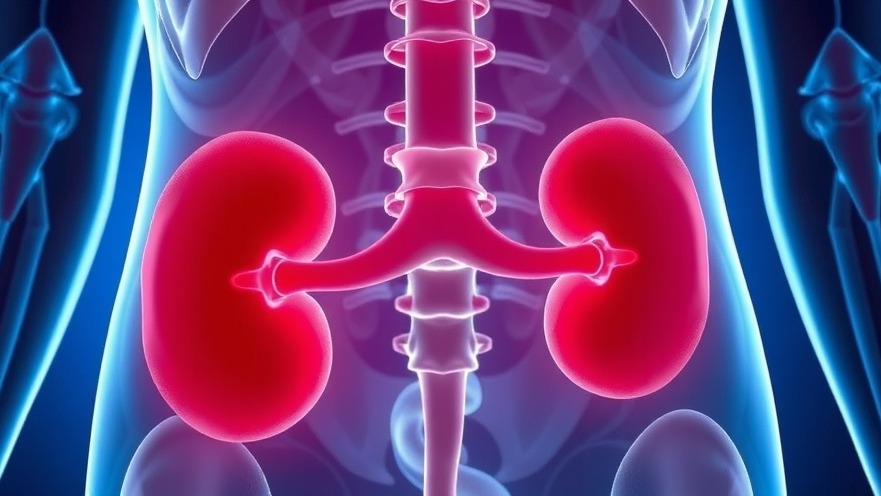
Understanding Kidney Cancer: An Overview for Concierge Medical Practices
Kidney cancer, particularly renal cell carcinoma, has become increasingly prevalent, making it crucial for concierge medical practices to understand its implications not only for patient care but also for building deeper patient relationships. Renal cell carcinoma primarily arises from the kidney's tubules, making it the most common kidney cancer in adults.
Recognizing the Symptoms
Awareness of symptoms is vital in early diagnosis. Patients may exhibit signs such as blood in the urine, abdominal lumps, persistent side pain, and unexplained weight loss. Concierge practices can play a pivotal role by educating patients on these indicators, fostering an environment where they feel comfortable discussing such symptoms without fear or embarrassment.
Risk Factors that Matter
While genetic predisposition can be a leading factor, lifestyle choices significantly influence kidney cancer risks. Smoking and obesity are notable contributors. By integrating prevention strategies into your practice, patients can receive valuable counseling aimed at mitigating these risks. Discussing weight management and smoking cessation not only safeguards patient health but also enhances the relationship and trust between patient and physician.
Diagnostic Procedures: What Practices Should Know
Concierge practices should be equipped to understand and facilitate the necessary diagnostic procedures, which include ultrasound, CT scans, and blood tests. By attending to every step in the diagnostic process, practices ensure patients feel supported and well-informed, indicating high-quality patient care.
The Treatment Landscape: Options and Patient Guidance
Treatment options for kidney cancer vary based on the cancer stage. Early-stage cancers may require surgery, while advanced cases could benefit from immunotherapy or targeted therapy.
As a concierge medical provider, guiding patients through their treatment options is essential. Providing comprehensive information allows patients to make informed decisions about their care plans.
Different Treatment Modalities
Concierge medicine excels in communication, which is vital in discussing treatment modalities such as surgery, radiation, and immunotherapy. Each treatment presents unique considerations and potential side effects. Your role is to ensure open dialogues where patients feel free to ask questions about their treatment pathway fully.
Follow-up Care: A Vital Continued Connection
Kidney cancer treatment often includes ongoing follow-up care to monitor for recurrence. Concierge practices can provide reassurance and continuity in patients’ lives, rendering additional emotional support during these follow-up stages.
Living Well: Coping Mechanisms for Patients
It’s vital to foster a supportive atmosphere where patients can express their worries and experiences. This contributes to their psychological well-being during treatment and recovery. Offering emotional support or recommendations for therapy can immensely enhance patient comfort and resilience.
Connecting Through Comprehensive Care
For concierge medical practices keen on enhancing their operations, integrating patient education and stringent follow-up mechanisms is paramount. This connection not only nurtures trust but solidifies your practice’s reputation as a community leader in kidney cancer care.
Understanding kidney cancer and effectively communicating these insights can empower concierge medical practice owners to deepen their connection with patients, ultimately elevating the quality of care offered.
Consider becoming a resource for your patients by staying abreast of the latest research and treatment options in kidney cancer.
 Add Row
Add Row  Add
Add 






Write A Comment